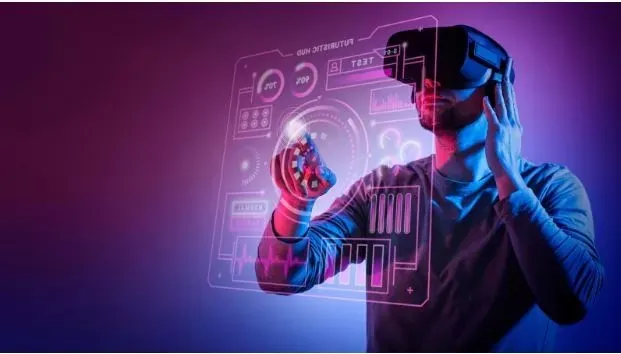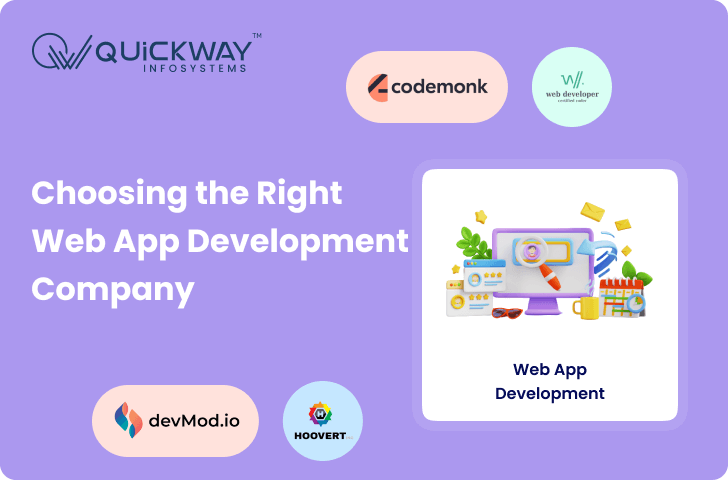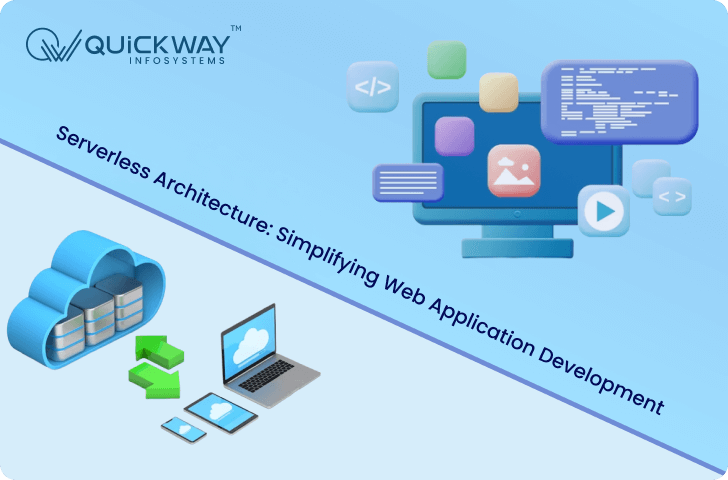The transformation brought about by artificial intelligence (AI) is sweeping across every industry. Artificial Intelligence is empowering companies to automate processes, gain valuable insights from data, and develop innovative value propositions. This growth of AI is enabling businesses to create revolutionary products and services, while enhancing productivity, and establishing a competitive advantage.
AI, a rapidly advancing technology, has the potential to revolutionize all sectors. It involves the use of computer systems to perform tasks that traditionally require human intelligence, such as speech recognition, natural language interpretation, and decision-making. It is currently playing a crucial role in driving digital transformation, which integrates digital technology into all aspects of business and significantly impacts operations and customer value.
Here are some stats and market forecasts that will provide insights into the growth and impact of artificial intelligence (AI) across the globe:
AI Market Size and Growth Forecast:
In 2022, the value of the worldwide Artificial Intelligence market was $136.55 billion. With exponential growth projected in the upcoming years, the prospects for AI in the future are extremely positive. Increased investments in AI technology, digital disruption, and the pursuit of competitive advantage in the quickly growing global economy all contribute to this expansion. Here are some noteworthy statistics:
The global Artificial Intelligence market is projected to grow at a compound annual growth rate (CAGR) of 37.3% from 2023 to 2030, reaching an estimated value of $1,811.8 billion by 2030.
Ready to kick start your new project? Get a free quote today.
Contribution to the Global Economy:
1. AI possesses tremendous potential to contribute to the global economy, shaping various industries and sectors. By the year 2030, AI is expected to surpass the combined current output of India and China, making it a significant economic driver.
2. It is projected that AI will contribute $15.7 Trillion to the global economy by 2030, surpassing the combined current output of China and India.
These statistics highlight the substantial growth and transformative impact that AI is poised to have on the global economy in the years ahead. It underscores the importance of embracing AI and leveraging its potential to drive innovation, efficiency, and economic prosperity.
What is the impact of Artificial Intelligence on various industries?
The impact of AI is profound and wide-ranging when it comes to different industries. Here are a few examples of how AI is transforming different sectors:
1. AI in Healthcare:
AI is revolutionizing healthcare by leveraging its capabilities in various areas. It enhances disease diagnosis and treatment by analyzing patient data, identifying patterns, and predicting the progression of illnesses. This enables healthcare professionals to develop personalized treatment plans and make more accurate diagnoses. Artificial Intelligence also facilitates remote patient monitoring, allowing healthcare providers to remotely track patients’ vital signs and health conditions.
AI is also essential for the discovery and development of new drugs since it makes it faster to find promising medication candidates and improve treatment strategies. Additionally, population health management, which lets healthcare organizations analyze huge databases to spot trends, anticipate disease outbreaks, and optimize resource allocation, is made possible by predictive analytics powered by AI.
2. AI in Finance:
AI has transformed the finance industry by improving several aspects. Enhanced fraud detection and prevention are achieved through AI algorithms that analyze vast amounts of data, identifying suspicious patterns and anomalies that indicate fraudulent activities. Algorithmic trading, driven by AI, automates the execution of trades based on sophisticated trend analysis, enabling faster and more efficient trading strategies.
AI also plays a crucial role in risk management, as algorithms can analyze historical data, identify potential risks, and predict their likelihood, allowing financial institutions to make informed decisions. Moreover, AI enables personalized financial services by analyzing customer data, understanding their needs, and tailoring financial products and services to individual customers’ preferences.
3. AI in Retail:
AI is transforming the retail industry by optimizing various processes. In terms of inventory management, AI algorithms can analyze historical sales data, customer preferences, and market trends to forecast demand accurately. This enables retailers to optimize their inventory levels, reduce stockouts, and minimize excess inventory.
AI-driven chatbots provide round-the-clock customer support, handling customer inquiries, assisting with product recommendations, and improving overall customer service. Additionally, Artificial Intelligence enables personalized shopping experiences by analyzing customer data and preferences to deliver tailored product recommendations and personalized offers. Sales forecasting is also enhanced through Artificial Intelligence, as algorithms can analyze multiple variables and predict future sales trends, allowing retailers to make data-driven decisions.
Ready to kick start your new project? Get a free quote today.
4. AI in Manufacturing:
AI is reshaping the manufacturing industry by improving various aspects of the production process. Predictive maintenance, powered by AI, uses sensor data and machine learning algorithms to detect patterns and anomalies in equipment performance, enabling proactive maintenance to prevent breakdowns and optimize productivity.
AI-driven quality control systems can analyze images and sensor data to identify defects in real-time, reducing waste and ensuring product quality. Supply chain management benefits from AI algorithms that can analyze large amounts of data, optimize logistics routes, and predict demand fluctuations. Additionally, the use of autonomous robots in production, guided by Artificial Intelligence, enables more efficient and flexible manufacturing processes, reducing costs and increasing productivity.
5. AI in Transportation:
AI is revolutionizing the transportation industry by introducing advancements in several areas. Autonomous vehicles, powered by AI, have the potential to improve road safety, reduce accidents, and enhance transportation efficiency. AI algorithms enable autonomous vehicles to perceive and interpret their surroundings, make informed decisions, and navigate safely.
AI’s capacity to analyze real-time traffic data, optimize traffic flow, and offer effective route recommendations is advantageous for traffic management and optimization—AI-enabled predictive maintenance can foresee the need for repair on equipment and infrastructure, cutting downtime and increasing operational effectiveness.
6. AI in Education:
AI is transforming the education industry, revolutionizing learning processes and experiences. Personalized learning is facilitated by AI algorithms that analyze student data, such as learning preferences and performance, to create personalized learning paths tailored to individual needs. Intelligent tutoring systems leverage Artificial Intelligence to provide personalized feedback, support, and adaptive learning experiences.
Adaptive assessments powered by AI can dynamically adjust the difficulty level and content based on students’ understanding, providing targeted feedback and recommendations for improvement.
Natural language processing enables AI-powered chatbots to assist students with queries, assignments, and assessments, offering instant support and guidance. AI in education aims to make learning more efficient, effective, and tailored to individual students’ needs.
7. AI in Agriculture:
Artificial Intelligence is revolutionizing agriculture, making it more efficient, sustainable, and productive. Precision farming utilizes AI algorithms to analyze data from sensors, drones, and satellites, providing insights into soil health, crop growth, and weather patterns. Crop monitoring uses AI to identify pests, diseases, and nutrient deficiencies. Autonomous farming with AI-powered robots and drones reduces labor costs and enhances efficiency. Predictive analytics assists farmers in planning crop growth, harvest timing, and market predictions.
These examples merely scratch the surface of how AI is transforming various industries. As Artificial Intelligence continues to evolve, it is expected to present new opportunities and challenges to society and businesses. To remain competitive, organizations must embrace AI and harness its potential to drive innovation, efficiency, and growth.
Ready to kick start your new project? Get a free quote today.
Conclusion
Artificial Intelligence‘s transformative power is reshaping industries in profound ways. By embracing AI, organizations can automate operations, gain valuable insights from data, personalize experiences, and foster innovation. The potential of AI is enormous, enabling businesses to create innovative products and services, increase productivity, and gain a distinct competitive edge.
To thrive in this evolving landscape, organizations must wholeheartedly embrace AI and leverage its capabilities to drive digital transformation. By doing so, you can unlock new horizons of success and propel themselves into a future defined by limitless possibilities.



